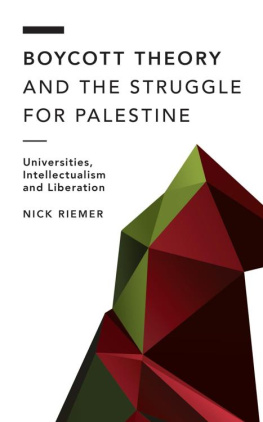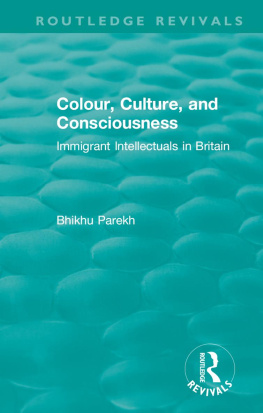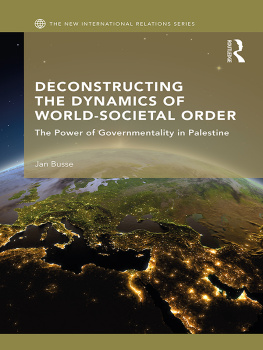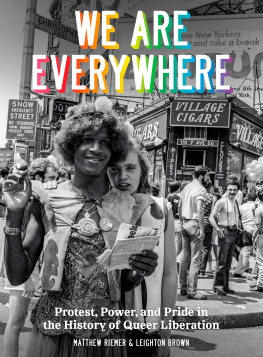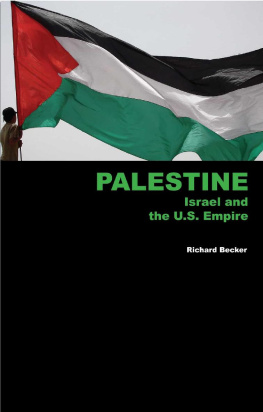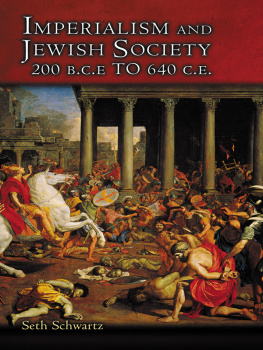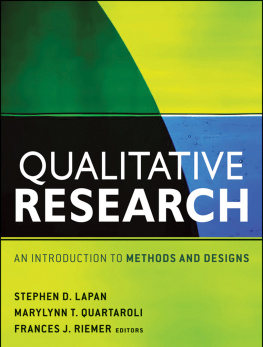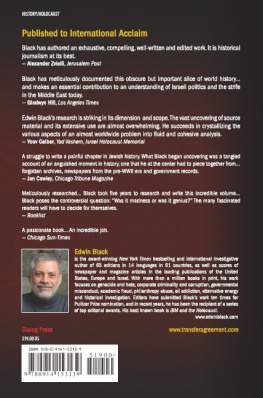Nick Riemer - Boycott Theory and the Struggle for Palestine (Off the Fence: Morality, Politics and Society)
Here you can read online Nick Riemer - Boycott Theory and the Struggle for Palestine (Off the Fence: Morality, Politics and Society) full text of the book (entire story) in english for free. Download pdf and epub, get meaning, cover and reviews about this ebook. year: 2022, publisher: Rowman & Littlefield Publishers, genre: Politics. Description of the work, (preface) as well as reviews are available. Best literature library LitArk.com created for fans of good reading and offers a wide selection of genres:
Romance novel
Science fiction
Adventure
Detective
Science
History
Home and family
Prose
Art
Politics
Computer
Non-fiction
Religion
Business
Children
Humor
Choose a favorite category and find really read worthwhile books. Enjoy immersion in the world of imagination, feel the emotions of the characters or learn something new for yourself, make an fascinating discovery.
- Book:Boycott Theory and the Struggle for Palestine (Off the Fence: Morality, Politics and Society)
- Author:
- Publisher:Rowman & Littlefield Publishers
- Genre:
- Year:2022
- Rating:4 / 5
- Favourites:Add to favourites
- Your mark:
- 80
- 1
- 2
- 3
- 4
- 5
Boycott Theory and the Struggle for Palestine (Off the Fence: Morality, Politics and Society): summary, description and annotation
We offer to read an annotation, description, summary or preface (depends on what the author of the book "Boycott Theory and the Struggle for Palestine (Off the Fence: Morality, Politics and Society)" wrote himself). If you haven't found the necessary information about the book — write in the comments, we will try to find it.
Nick Riemer: author's other books
Who wrote Boycott Theory and the Struggle for Palestine (Off the Fence: Morality, Politics and Society)? Find out the surname, the name of the author of the book and a list of all author's works by series.
Boycott Theory and the Struggle for Palestine (Off the Fence: Morality, Politics and Society) — read online for free the complete book (whole text) full work
Below is the text of the book, divided by pages. System saving the place of the last page read, allows you to conveniently read the book "Boycott Theory and the Struggle for Palestine (Off the Fence: Morality, Politics and Society)" online for free, without having to search again every time where you left off. Put a bookmark, and you can go to the page where you finished reading at any time.
Font size:
Interval:
Bookmark:
The series is published in partnership with the Centre for Applied Philosophy, Politics & Ethics (CAPPE), University of Brighton.
Series Editors:
Bob Brecher, Professor of Moral Philosophy, University of Brighton
Robin Dunford, Senior Lecturer in Globalisation and War, University of Brighton
Michael Neu, Senior Lecturer in Philosophy, Politics and Ethics, University of Brighton
Off the Fence presents short, sharply argued texts in applied moral and political philosophy, with an interdisciplinary focus. The series constitutes a source of arguments on the substantive problems that applied philosophers are concerned with: contemporary real-world issues relating to violence, human nature, justice, equality and democracy, self and society. The series demonstrates applied philosophy to be at once rigorous, relevant, and accessiblephilosophy-in-use.
The Right of Necessity: Moral Cosmopolitanism and Global Poverty, by Alejandra Mancilla
Complicity: Criticism between Collaboration and Commitment, by Thomas Docherty
The State and the Self: Identity and Identities, by Maren Behrensen
Just Liberal Violence: Sweatshops, Torture, War, by Michael Neu
The Troubles with Democracy, by Jeff Noonan
Against Borders: Why the World Needs Free Movement of People, by Alex Sager
Digital Working Lives: Worker Autonomy and the Gig Economy, by Time Christiaens
The Other Enlightenment: Race, Sexualist and Self-Estrangement, by Matthew Sharpe
Boycott Theory and the Struggle for Palestine: Universities, Intellectualism and Liberation, by Nick Riemer
ROWMAN & LITTLEFIELD
Lanham Boulder New York London
Published by Rowman & Littlefield
An imprint of The Rowman & Littlefield Publishing Group, Inc.
4501 Forbes Boulevard, Suite 200, Lanham, Maryland 20706
www.rowman.com
8690 Paul Street, London EC2A 4NE
Copyright 2023 by The Rowman & Littlefield Publishing Group, Inc.
All rights reserved. No part of this book may be reproduced in any form or by any electronic or mechanical means, including information storage and retrieval systems, without written permission from the publisher, except by a reviewer who may quote passages in a review.
British Library Cataloguing in Publication Information Available
Library of Congress Cataloging-in-Publication Data Available
ISBN 9781538175866 (cloth: alk. paper)
ISBN 9781538175873 (pbk.: alk. paper)
ISBN 9781538175880 (ebook)
 The paper used in this publication meets the minimum requirements of American National Standard for Information SciencesPermanence of Paper for Printed Library Materials, ANSI/NISO Z39.481992.
The paper used in this publication meets the minimum requirements of American National Standard for Information SciencesPermanence of Paper for Printed Library Materials, ANSI/NISO Z39.481992.
Universities are in many ways at the forefront of the Palestine solidarity movement in the west a situation that shows in a nutshell just how far the movement still has to go before justice for Palestinians is likely to be achieved. This books focus is on just one aspect of Palestine solidarity on campus: the institutional academic boycott of Israel, a branch of the Boycott, Divestment and Sanctions (BDS) campaign. If Israels apartheid practices are to end, the intensity with which BDS is often debated in higher education will have to be matched outside it. One of the ways this can happen, perhaps, is by normalizing the boycott in academia, in order to establish universities as precedents for the kind of principled solidarity with Palestine that should be encouraged in other contexts. My hope is that this book can contribute to this goal.
More specifically, the chapters that follow have the ambition of advancing the academic boycott of Israel in three ways: by presenting a comprehensive justification for the boycott in itself, by analyzing the university contexts in which the call to boycott is made and by relating it to various questions within contemporary political and intellectual life, in recognition of the fact that, more than simply the main expression of support for Palestine in academia, the academic boycott is also one of the most divisive topics in the politics of knowledge today.
The book is intended for anyone who is at least open to the possibility that the academic boycott of Israel is politically and intellectually justifiable. Its starting point is the observation that BDS overall appears to be easily the most powerful tactic that the Palestine solidarity movement currently has. This is a premise of the argument that follows, so I will not be offering either any speculation on the boycotts utility in comparison to other tactics that Palestinians and their allies might adopt or any assessment of specific academic boycott achievements or failures. This should not be taken as any sign of overinvestment in the academic boycott or overestimation of its political possibilities. Justice for Palestinians will obviously not be achieved by any kind of activism among academics or students on their own which is why people involved in BDS on campus are also typically active in other Palestine solidarity (and wider antiracist and decolonization) efforts. These wider efforts are not my concern here: while I often use the term BDS as shorthand to refer simply to the academic boycott, I have little to say about wider campaign activity beyond it, whether student activism, university divestment campaigns or other forms of Palestine solidarity on or off campus. This selectivity does not come from any lack of appreciation of these other activities importance. Rather, by homing in on a small facet of the wider BDS campaign, I hope to suggest just how robust and intellectually rich the justification for Palestine solidarity more generally is: if, as I argue, it makes political sense to boycott Israeli universities, which pursue work that they regularly claim is indispensable to peace efforts in Palestine-Israel, then boycotting cultural and consumer activity, where the same claim is much less plausible, immediately becomes easier.
This book has been a long time in the making, and I have relied more than usual on friends and colleagues for help in writing it and advice on how to publish it. Im extremely grateful to the numerous academics throughout the West Bank, most of whom need to remain unnamed, who have helped me to understand the experience of Palestinian universities under occupation in finer detail. Without their generosity, the analysis here would have been greatly impoverished. Im also especially grateful to everyone who read the manuscript in its entirety or in part, supplied details or clarifications or helped in other ways with the development of aspects of the argument or with the books journey into print: Abaher El-Sakka, Ahmed Beshtawi, Aurlien Mondon, Briony Neilson, Bruce Robbins, David Brophy, Eran Asoulin, Fahad Ali, Gavan Titley, Jacqueline Lon, James Godfrey, Jean-Michel Fortis, Jumana Bayeh, Lana Tatour, Marcelo Svirsky, Mark Johnston, Mazin Qumsiyeh, Nadine El-Enany, Nina Riemer, Osama Jarrar, Robert Boncardo, Sam Jones, Sarah Keenan, Saree Makdisi, Sebastian Budgen, Simon During, Sol Salbe, Stefan Mattesich, Steven Salaita and Tom Riemer. Their generosity has significantly improved the result. Im grateful to Eran Asoulin and Benedetto Passaretti for their meticulous research-assisting and manuscript-preparation work and to Bob Brecher for his generous and astute advice on the manuscript and for going above and beyond in facilitating the books publication. Id also like to thank the two anonymous readers for Rowman and Littlefield for their valuable comments. It goes without saying that no one mentioned is responsible for any mistakes or misinterpretations and certainly shouldnt be assumed to share any of the ideas in the book.
Font size:
Interval:
Bookmark:
Similar books «Boycott Theory and the Struggle for Palestine (Off the Fence: Morality, Politics and Society)»
Look at similar books to Boycott Theory and the Struggle for Palestine (Off the Fence: Morality, Politics and Society). We have selected literature similar in name and meaning in the hope of providing readers with more options to find new, interesting, not yet read works.
Discussion, reviews of the book Boycott Theory and the Struggle for Palestine (Off the Fence: Morality, Politics and Society) and just readers' own opinions. Leave your comments, write what you think about the work, its meaning or the main characters. Specify what exactly you liked and what you didn't like, and why you think so.

